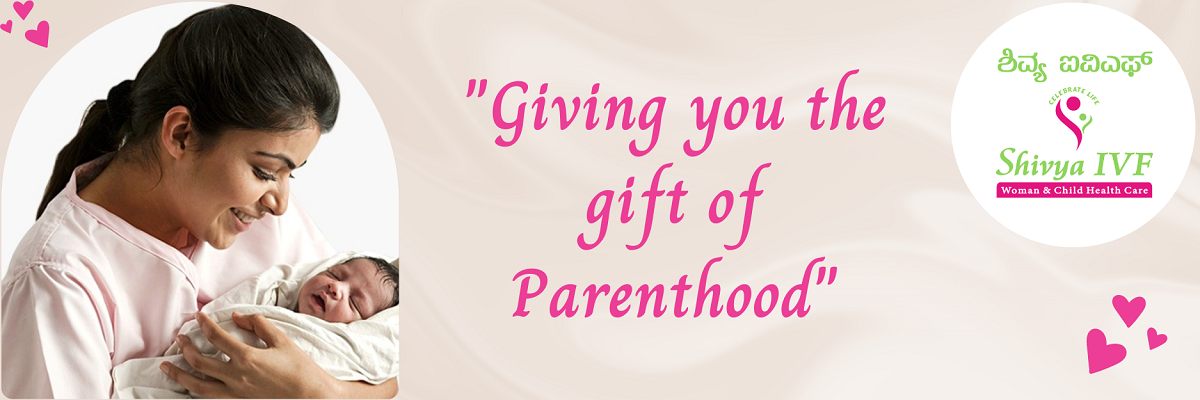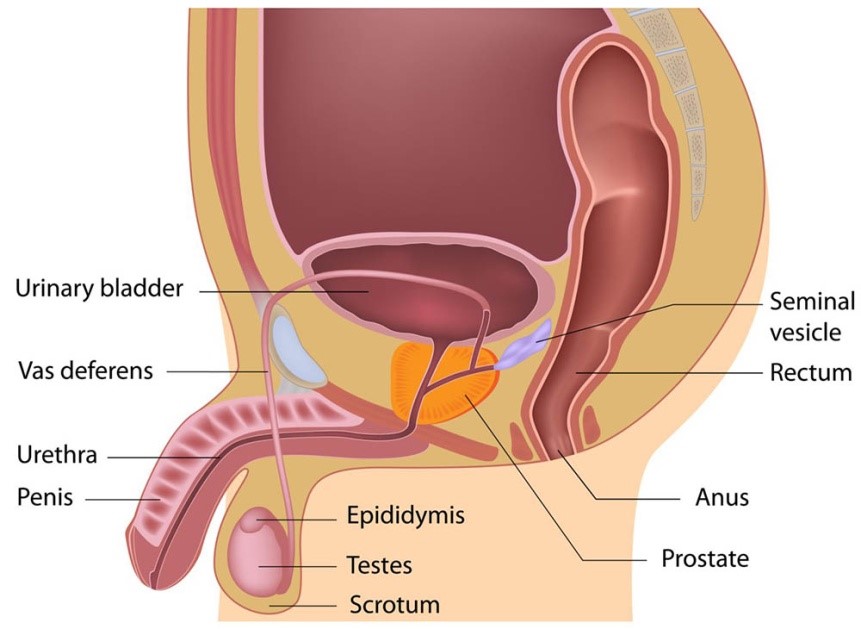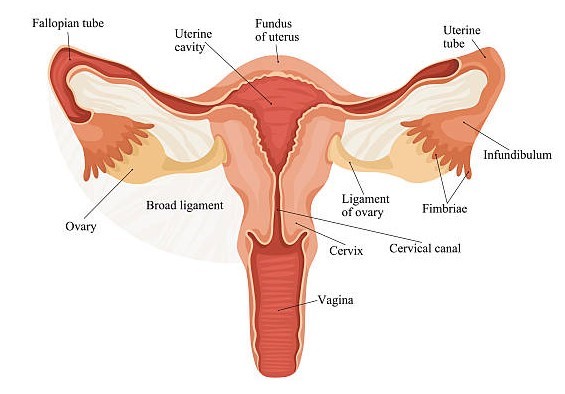
Understanding Fertility
In order to understand the fertility tests and treatments you may be offered, it is important to understand how pregnancy naturally occurs. To know the natural Process of becoming pregnant we should be aware of male and female reproductive system.
Male reproductive system

Semen consists of fluid and sperm that a man’s penis releases during orgasm. The fluid comes from the sex glands (prostate gland, the seminal vesicle). The testicles produce and store sperm. When a man ejaculates and releases semen through the penis, the seminal fluid helps transport the sperm toward the egg. If testicles are damaged, it can seriously affect the quality of your semen.
Female reproductive system

The process of becoming pregnant
First, your ovary must release (ovulation) an egg which must be picked by the fallopian tube. The egg then moves down the fallopian tube where it can be fertilised. If sperm are in the fallopian tube when the egg is released, there is a good chance that the egg will be fertilised, creating an embryo, the embryo then travels down the fallopian tube to the uterus, where it attaches to the uterine lining and can grow into a baby. A problem that develops in any part of this process can lead to infertility.
When are you more likely to conceive?
After a couple has had sex, even though an egg only survives for 12-24 hours, sperm survive for up to 5 days. Therefore, having sex every two to three days is likely to maximise your chance of getting pregnant.
Timing sex for pregnancy
Your most fertile days (the days in a woman’s menstrual cycle when pregnancy is possible) are the three days leading up to and including the day of ovulation. Having sex during this time gives you the best chance of getting pregnant.
Signs of ovulation
Ovulation is when a mature egg is released from the ovary. A few days before ovulation, you may notice your vaginal mucus becomes slippery, and feels a bit like egg white. Also sperm travel more easily in this kind of mucus.
To test your urine for signs of ovulation, you can use a predictor kit from a pharmacy or get an ultrasound examination.
Age is the utmost important Fertility factor
Delaying pregnancy is a common choice for women in today’s society. The woman’s age should be used as an initial predictor of her overall chance of success through natural conception.
For women the easiest time to get pregnant is before the age of 30 as fertility declines with age. A woman is born with all the eggs she will ever have. It takes longer to conceive and chance of having a baby also reduces over time, especially for women older than 35 years of age because as women get older her eggs age with her and both their quantity and quality reduces over time. While age can’t be controlled, if you want to become a mother, sooner is better than late.
It takes longer for partners of men older than 40 years to conceive.
